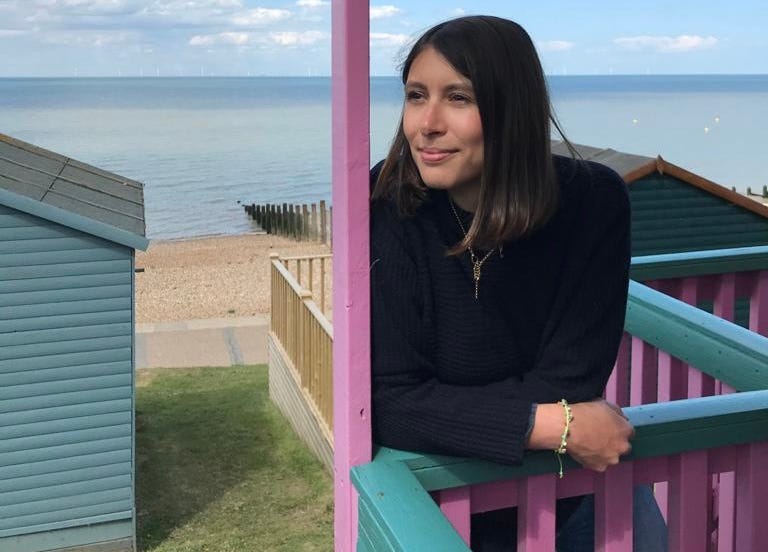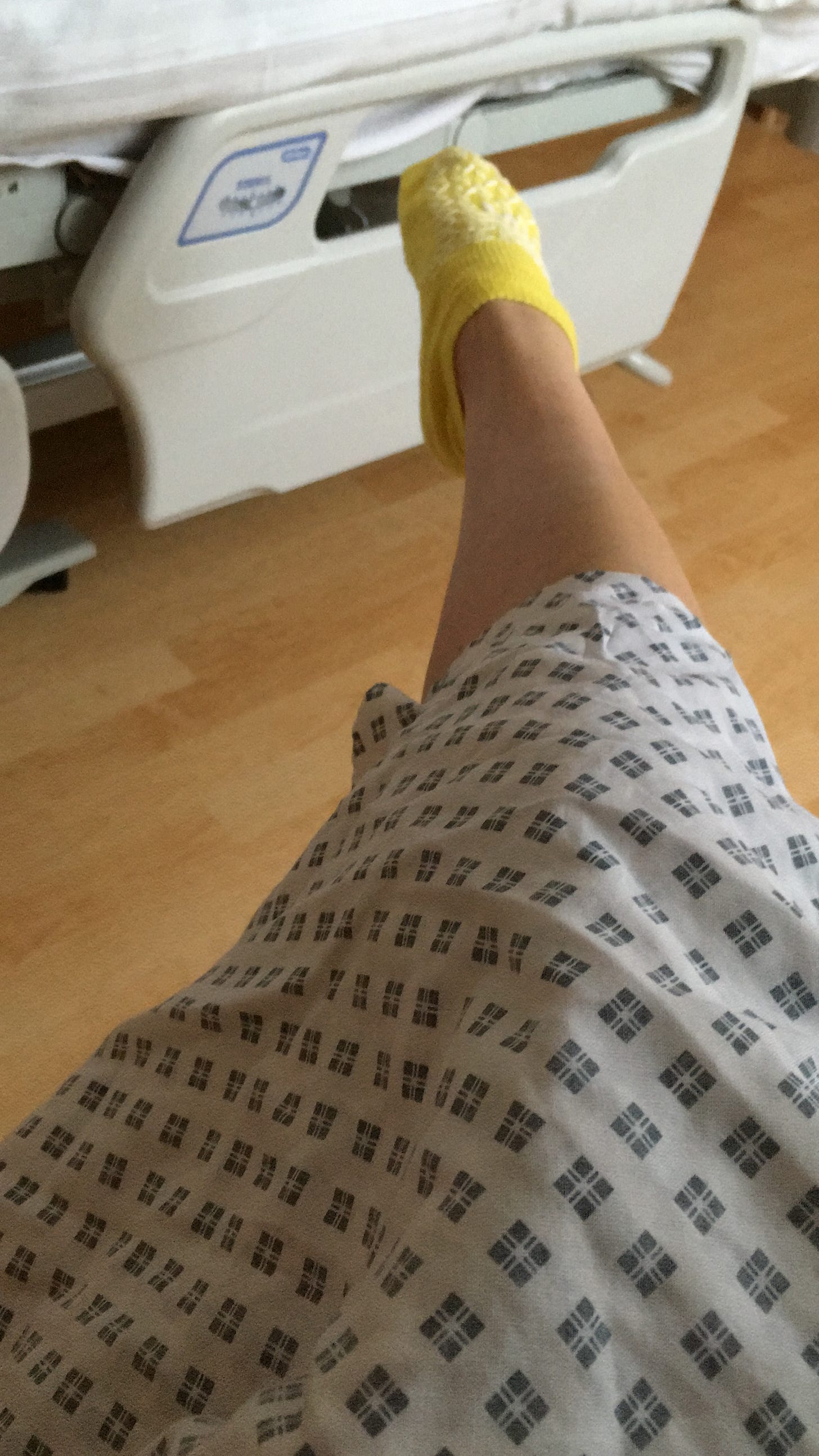How it feels to be told ‘it’s all in your head’ for 20 years
A story about trying to forget my medical gaslighting

A few weeks ago, I met a journalist from Brazil. We were on a press trip together and, as we were shuttled from meeting to meeting, I could see she was struggling. “I’m in pain,” she told me, when I asked if everything was alright. “I’ve got endometriosis and I could really use a heat pad and a lie down right now.”
Despite living 6,000 miles apart, our experiences were frustratingly similar: years of pain before getting a diagnosis (10 for her, 20 for me) and only then by going private. Being repeatedly dismissed by doctors, who told us we just had ‘bad periods’ and just needed to ‘put up with it.’
I’ve written previously about my experience here and how I was finally diagnosed with endometriosis (in which tissue similar to the womb lining grows where it shouldn’t) and adenomyosis (a similar condition, where the lining grows into the muscle wall of the womb itself) in 2022.
But what’s harder to put down on paper is the impact of being told, over and over, that there’s nothing really wrong with you. Not just in the moment, but the long-term effects, even after finally being diagnosed when everything is supposed to be OK again.
I want to try, because so many women like me - in the UK and on the other side of the world - are going through the same thing; sisters in dismissal. It’s no coincidence that #medicalgaslighting has had 300m views on TikTok.
Here, in Britain, at least 1.5 million women (1 in 10, maybe more) have endo. I’m willing to bet that most of them will have had an experience of not being listened to by a medical professional. The average time to diagnosis is eight years, which tells you everything.
Well, not everything. Because behind the symptoms and statistics is a deep well of female pain that’s not being talked about enough. It’s time to try.
A new study by Manchester Metropolitan University agrees. It found that women with endometriosis, who have endured years of agony, are being ‘fobbed off’ and told their symptoms are ‘all in their head’, leading them to give up seeking NHS treatment. It concluded that women feel ‘gaslit’ by doctors, due to a lack of understanding around the condition.
Women who took part in the research were told they were exaggerating their symptoms and that their pain was psychological, leaving them angry, fearful, anxious, frustrated and powerless. Many were deterred from seeking further care.
“I feel a lot of mistrust towards the healthcare system in general, simply because I have been told that the pain was in my head, that I must have a low pain threshold or that I was in pain because I was fat,” said one 27-year-old.
Just take that in for a moment.
Of course, there are many good doctors out there, who have educated themselves on gynaecological conditions like endo and adeno. But many still seem unable to really listen when a woman tells them she’s having abnormal pain - the study found a lack of understanding and training when it came to acknowledging symptoms and referring patients on for further tests.
I know this to be true, because I’ve been there myself.
Here’s what I was told over the years by various NHS GPs (male and female) and one private consultant, supposedly one of the country’s leading experts…
You’re just unlucky
Some women suffer like this
Cramps like this are normal
Cystitis every couple of weeks isn’t unusual
You don’t have endometriosis
You’re a fit and healthy young woman
Are you drinking too much alcohol?
Maybe you’re not going to the loo quickly enough after sex
Your underwear could be too tight.
Viewed as a list, all at once, it seems a bit silly that I’d have believed any of that or let it put me off from seeking help for pain that left me rolling around my bedroom floor at 2am, in distress and sobbing. How I wish I could go back in time and reassure that girl that she was right all along.
But when you’re told these things, time and time again, you begin to absorb the message that there’s nothing out of the ordinary going on. You start to think you might be a time-waster, an attention-seeker or have a low pain threshold. Clearly, this is what most women go through, so why can’t you handle it?
It’s a drip, drip, drip effect - each little seed of doubt sewn in isolation, but the doctor’s words lingering long after the appointment is over and finding somewhere to make themselves comfortable in the recesses of your mind, along with all the others. Eventually, you stop advocating for yourself as strongly and fight a little less hard, because you’ve been made to believe there’s nothing to fight for. That there’s nothing really wrong with you, like the doctors say.
After all, these are professionals who have trained for years and whose sole job is to help you. I was raised to trust medics - hell, there’s nothing my dad would rather I had become myself, if only I hadn’t almost failed GCSE science. They know best, right?
When I did, finally, see a gynaecologist who told me that she thought I had endometriosis and recommended I have laparoscopic surgery to find out, I hesitated. I’d been gaslit too many times to truly believe it. I put the procedure off for months and months, because I’d been conditioned to think I didn’t have endo at all.
I’d learnt to live with it and to brush it off, until it got too bad to ignore completely. To my friends, family and bosses, I said things like “I’ve got my normal pain” - even though there was nothing normal about it.
In the end, I went through with the op. Hearing my diagnosis spoken out loud for the first time, albeit still groggy from general anaesthetic and unsure it was real, was a life-changing moment. The happy-ever-after of sweet validation.
But not only is there no satisfactory treatment for endometriosis or adenomyosis, it turns out there’s also no treatment for self doubt, having been gaslit for so long.
I’m not sure I can fully appreciate the long-term effects even now, two years on, which is probably why I’ve written so much above and put off trying to work it out until this point.
Firstly, I don’t trust my body. I suspect that it will let me down again (and it has, with a recurrence of pain experienced by half of women who have laparoscopies). Any twinge or ache prompts a feeling of ‘here we go again’. After all, my body and I are supposed to be in a good place now. We’ve been vindicated. Anything else going wrong feels like a betrayal.
There’s disassociation, as though my body isn’t actually ‘me’ but a separate entity - or enemy - that could attack at any moment. I suppose there’s also anger about all the distress it caused me and everything I’ve lost because of that. The years during which I could never fully relax; the ruined holidays and night’s out. The embarrassment of needing yet another day off work. Of pleading with doctor’s surgeries for more antibiotics. The weekends unable to get out of bed (endo sufferers being more likely to experience fatigue). Laughing at my own ‘stupidity’ for allowing myself to faint on buses and trains. No wonder people didn’t want to help me up, they must have thought I was drunk. Ha ha!
New medical issues send me into a spiral in one of two directions: panic and a fevered rush to seek help, or paralysis in which I delay contacting anyone out of fear that it will be the start of another unwelcome fight.
That’s not to say that I’m afraid of medical settings. When, not long ago, I woke up in the middle of the night with severe chest pain and the NHS 111 operator told me she’d called an ambulance, I didn’t freak out. It felt good that someone had taken me seriously. When I was admitted, after 14 grim hours in A&E spent watching the same TV news reports on loop, I didn’t feel alarm but comfort and recognition. Part of me didn’t want to go home after one night: were they sure I was better? (I wasn’t). Wasn’t I safer here, where the nurses and doctors could see my distress rather than my having to try and explain it to them later?
But perhaps the most frustrating thing is that I sometimes don’t trust my own judgement. I mean, why would I, when I accepted my own suffering for so many years? Sometimes, I wonder whether I still believe the medics who gaslit me. Then the pain begins again and I remember the truth: the one it took 20 years for anyone to hear.








I know EXACTLY what you mean. I’ve had all the surgeries, the complicated hormone treatments, the cocktail of painkillers. Last year I had all offending organs removed. While it appears to have solved the pain problem, it has just given me a whole raft of new issues to deal with via surgical menopause. What’s shocked me is not how long it has taken me to get a solution (12 years) but the lack of options. No new treatments in that time, no sign of any on the horizon- what other type of illness would be treated this way?
This is devastatingly powerful. The clarity and authenticity of your writing deeply emphasises the horror and pain of your experience. Many women will relate. Jx